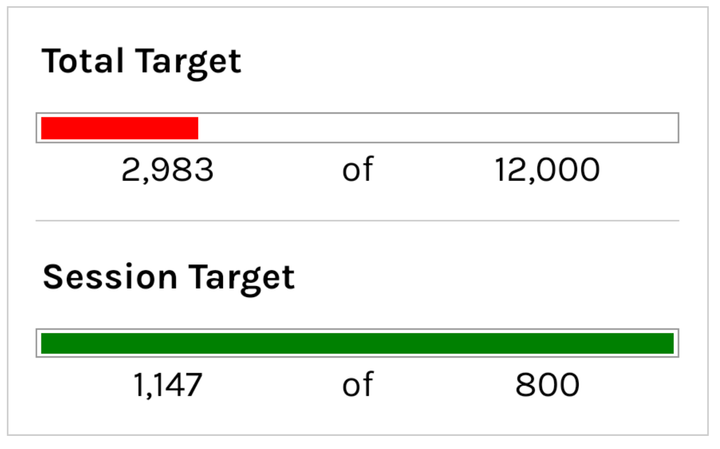Revolutionize Your CRM: 3 Game-Changing Google Sheet Formulas!
CRM software is essential for any business looking to increase revenue and build relationships with clients. Many small businesses are looking for their first piece of software to go from spreadsheets to something else. But what if I told you, you could just make your spreadsheets better.

Make Your CRM Better
With These Powerful Google Sheet Formulas!
Customer Relationship Management(CRM) software is essential for any business looking to increase revenue and build relationships with clients. Many small businesses are looking for their first piece of software to go from spreadsheets to something else. But what if I told you, you could just make your spreadsheets better.
Could save you a few years of scaling up and paying for software that's overkill for your business.
Level up your spreadsheet based CRM than with these game-changing Google Sheet formulas.
In this article, we will discuss three advanced formulas that will help revolutionize how you manage and analyze customer data.
First, we will explore FILTER() - a function that lets you focus on specific parts of your pipeline.
Second, we will dive into the powerful combination of INDEX / MATCH() which can replace VLOOKUP and find exactly what you're looking for in your data.
Finally, we will look at SUMIF() which allows you to add up a column based on criteria in other columns.
Let's get started!
Create Pickers with FILTER()
Using the FILTER() function in Google Sheets allows you to streamline your customer data into a more manageable format.

With this function, you can isolate specific criteria and focus on the parts of your pipeline that require the most attention.
FILTER() is great for creating quadrants too!

For example, if you have a large list of potential customers, you can use FILTER() to show only those who have shown interest in your product or service.

This will save you time and help you identify opportunities that you may have missed before.
By implementing FILTER() into your CRM strategy, you can better prioritize your leads and make more informed decisions about how to approach them.
Search Your Data Better with INDEX/MATCH()!
The INDEX/MATCH() combination is a powerful tool that can help you save time and reduce errors when searching for data in your CRM.
Unlike VLOOKUP, INDEX()/MATCH() gives you more flexibility and allows you to search for data horizontally and vertically.

You can even use it to search for data in multiple sheets within the same workbook.
With its ability to handle large datasets and complex search criteria, INDEX()/MATCH() is an essential formula for any business looking to streamline their CRM process and improve their data accuracy.
By mastering this technique, you can find the exact data you need at lightning speed.
Discover more Formula Combinations at BetterSheets.co

Use SUMIF() to Analyze Better
The last formula, SUMIF(), is a game-changer for businesses struggling to analyze their customer data efficiently.

With SUMIF(), you can calculate the total revenue generated by a specific group of customers, based on their location, age, or any other relevant criterion.
This means that you can gain valuable insights into your most profitable customer segments and adjust your strategy accordingly.

By using SUMIF() in conjunction with other formulas in this article, you can create dynamic spreadsheets. Your sheets could provide real-time customer insights and drive your business forward.
Go Beyond Basic with Better Sheets
These formulas are not only effective but user-friendly, making it easy for people of varying technical skill levels to incorporate them.
With a basic understanding of Google Sheets and these three formulas, any business can streamline their CRM process and gain important insights into their customer data.
They can help you save time, reduce errors, and ultimately increase revenue.
Implementing these Google Sheet formulas today, you can take your CRM to the next level and achieve greater success in your business.
But if you want to go byeond basic, learn Apps Script. Automate your spreadsheets in this quick 3 hour course. Faster than watching the Infinity War Saga again.
Spreadsheet Automation 101
Learn how to code, how to email from a sheet, and access APIs to gather data into sheets.

Revolutionize Your CRM
In conclusion, these game-changing Google Sheet formulas can revolutionize your CRM by streamlining your customer data, reducing errors, providing valuable insights, and creating dynamic reports.
The FILTER() function allows you to focus on the most critical parts of your pipeline.
The combination of INDEX/MATCH() provides more flexibility and accuracy than VLOOKUP.
Lastly, the SUMIF() formula helps you analyze your customer data efficiently.
By implementing these formulas, any business can improve their CRM process and gain a competitive advantage in the market.
These formulas are user-friendly, making them accessible to anyone with a basic understanding of Google Sheets.
Start using these formulas today and transform your customer data into a valuable asset for your business.




